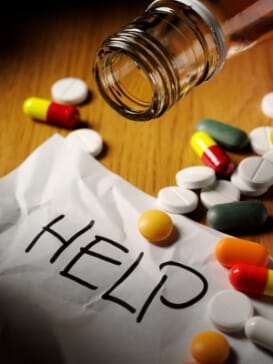

By: Lakeview Health
Types of Abuse
Abuse is a boundary violation and most commonly, but not exclusively, experienced in childhood. Childhood abuse can develop a pattern that follows you into adulthood. You may become a victim of abuse or become a predator in future relationships. Your boundaries are violated when someone crosses the invisible line that separates you from them with words, touches or emotions. Some addicts while in addiction rehab will disclose that some type of abuse occurred in their past and they have kept the abuse a secret. This secret helps to feed their addiction.
Three most common types of abuse are:
- Physical – In 2005 the American Humane Association reported that 16.6 percent of 3.3 million children were victims of physical abuse.
- Sexual– The National Center on Domestic and Sexual Violence reports that one in 4 girls and 1 in 6 boys will be sexually assaulted by the age of 18.
- Emotional – In a 1997 study by the National Center of Child Abuse and Neglect, emotional maltreatment was reported in 15 percent of children out of a total of 817,665.
When you stop using drugs and alcohol, you are left with uncomfortable thoughts and feelings from the past. These experiences that you had as a child may be still haunting you as an adult, and they are manifested through your drug addiction.
Addiction Re-offends
When you use drugs and alcohol, you have taken on the role of perpetrator in your own life. The abuse you endured (whether as a child or an adult) continues, but now you are abusing yourself. Every single time you put alcohol or drugs into your body, you are violating your own boundaries.
Individual boundary violations:
- Self-destruction – Doing things that are harmful to your body, mind and spirit. Activities that you usually regret doing afterward contribute to the cycle of drug and alcohol abuse.
- Self-hatred –Telling yourself negative thoughts and treating yourself poorly. Negative self-talk produces uncomfortable feelings, which reinforces substance abuse to escape unwanted emotions.
- Self-denial – Not allowing yourself to feel pleasure or contentment in life. You try to eliminate this emptiness with continued alcohol and drug addiction.
Continuing to blame yourself for experiences that were out of your control keeps you in addiction and thinking of yourself as a victim. In an addiction rehab you will learn how to stop the abuse while eliminating your addiction.
Eliminate Substance Abuse and Resolve Abuse Issues
Lakeview Health will help you resolve issues of abuse while getting sober. We have therapists who have been specially trained to address your specific needs. When you first enter addiction rehab, you will be taken to medical detox. During this time you may feel overwhelmed by surfacing emotions. Don’t be alarmed. This is a temporary period of time that you need to pass through to help you continue and resolve underlying issues. This decreases your chances of relapse on drugs and alcohol when you leave treatment.
Three Steps to Healing in Addiction Rehab:
- Eliminate addiction through detox
- Start therapy in addiction rehab
- Recovery in support and continued outpatient therapy





